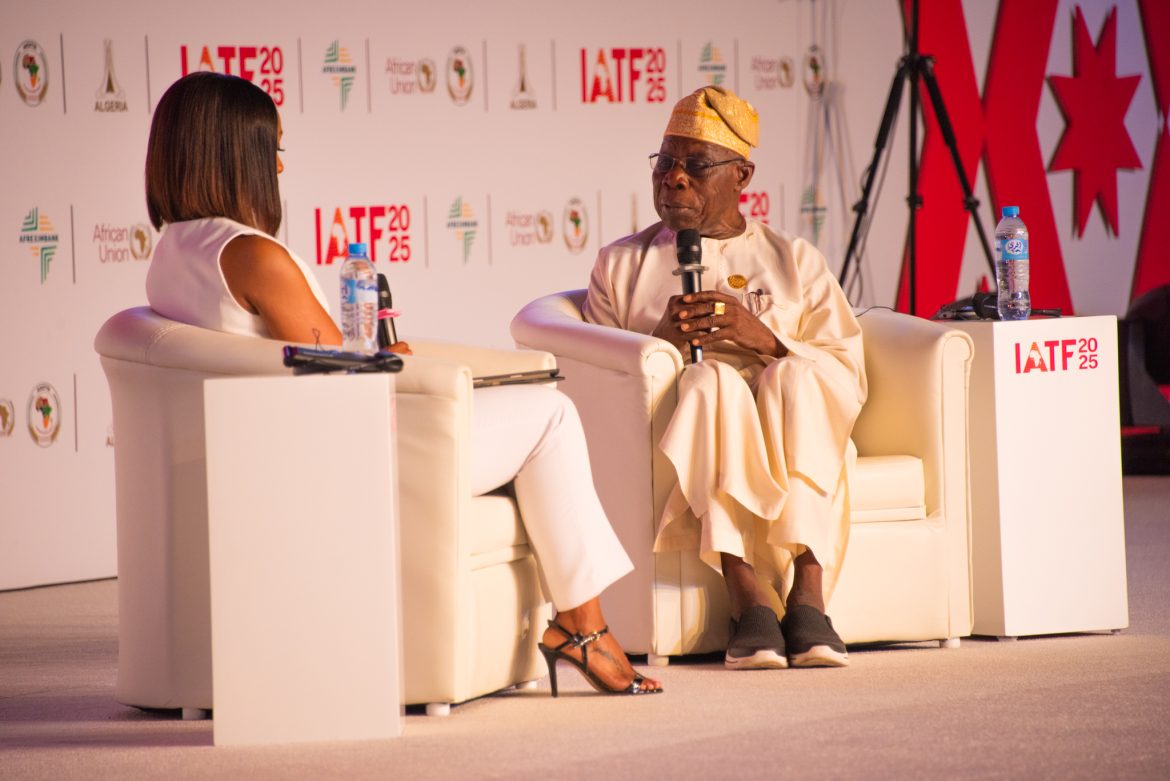There’s something profound about listening to a man who has walked the full arc of Africa’s modern journey.
Former Nigerian President Olusegun Obasanjo, now in his role as chair of the Intra-African Trade Fair (IATF) Advisory Council, recently shared reflections that cut to the heart of both Africa’s promise and its persistent challenges. His words carry the weight of decades spent navigating the complex terrain between idealism and pragmatism, between continental dreams and local realities.
The Genesis of Unity
Obasanjo’s journey toward pan-African thinking began not in the corridors of power, but in the classrooms of New York University in 1967, followed by his time at the University of Africa in Nigeria.
It was there, playing football with young men from across the continent, that something clicked. Unity, he realized, wasn’t just a political slogan—it was a lived experience, felt in the simple joy of shared humanity.
“We belong,” he said, with the conviction of someone who has seen this truth tested by fire. “We all have unity. Unity of match.”
This wasn’t mere rhetoric. When he spoke of the Democratic Republic of Congo in the 1960s, of peacekeeping missions and the collaborative efforts of African leaders, there was an understanding that without that unity, many of today’s freedoms—including the freedom of a black South African woman to sit on that stage as an interviewer—might never have been realized.
The Paradox of Progress
Yet for all the progress symbolized by the IATF’s growth from a modest beginning to a gathering of 48 African countries plus international participants, Obasanjo doesn’t shy away from uncomfortable truths. The continent that showed such solidarity in times of external threat now finds itself plagued by internal conflicts. Africans fighting Africans. The irony wasn’t lost on him.
His diagnosis is unflinching: mismanagement at every level. Not just political mismanagement, but what he called “diversity mismanagement”—the failure to harness the continent’s rich differences as a source of strength rather than division. Security challenges persist because the fundamental work of governance, of building institutions that serve people rather than elites, remains incomplete.
The Brutal Honesty About Global Economics
Perhaps the most striking moment came when Obasanjo shifted to economics, revealing a conversation that laid bare the harsh realities of global trade. With characteristic bluntness, he recounted being told: “We devised capitalism for ourselves, not for you… not even for humanity’s sake.”
This wasn’t the bitter complaint of a defeated leader, but the clear-eyed assessment of someone who understands the game being played. “Market has been our food. It’s market for my good profit and for your good loss,” he observed. “Globalization means you close your door, me, I should open my door, and you get everything out of my house.”
The solution, in his view, isn’t to retreat from global markets but to understand them better—and to turn inward with equal vigor. He spoke of Uganda’s 5.5 billion liters of milk production, of Nigeria’s potential demand, of the simple logic of supply chains that could transform continental trade if only African countries chose to trade with each other with the same intensity they trade with distant partners.
Beyond the Politics of Hope
What emerges from Obasanjo’s reflections isn’t the typical narrative of either Afro-pessimism or naive optimism. Instead, it’s something more valuable: practical wisdom born from experience. He has seen what unity can achieve—in liberation struggles, in peacekeeping, in the growing success of initiatives like the IATF. But he has also seen how easily that unity can fracture when the immediate threat recedes and the hard work of building institutions begins.
His message seems to be that Africa’s future depends not on grand gestures or soaring rhetoric, but on the mundane work of good governance, of understanding markets, of choosing to see fellow Africans as partners rather than competitors. It requires what he called “match”—not just political unity, but economic unity, cultural unity, the deep integration that comes from recognizing shared destiny.
The Long View

